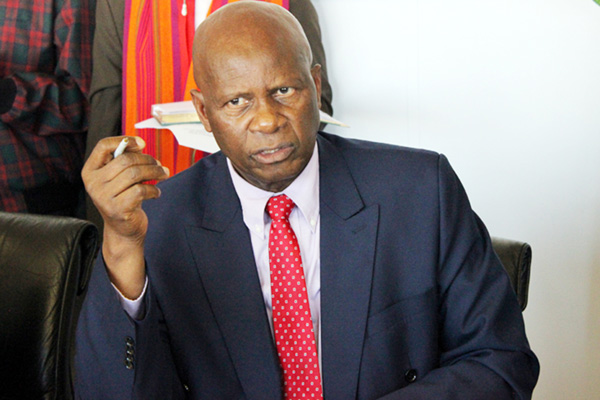
Finance minister Patrick Chinamasa has to make bold decisions when formulating the 2017 national budget and reduce taxes as well as encourage the wider use of the South African rand to save the economy from total collapse.
BY VICTORIA MTOMBA
The advice given by workers, industrialists and the business community came a few weeks before Chinamasa presents the budget on December 8 amid rising expectations for decisive action by government to stop the economic malaise.
Zimbabwe Congress of Trade Union secretary-general Japhet Moyo said a review of the tax regime had become urgent considering that most companies were struggling and a number of workers had lost their jobs.
“Most people are heavily taxed in Zimbabwe and the next budget should address the issue of the tax regime,” he said.
“A lot of people are no longer formally employed, hence more money should be spent on social welfare programmes, such as the [Basic Education Module] Beam and on access to medication.”
Caleb Fundanga, the Macroeconomic and Financial Management Institute of Eastern and Southern Africa executive director urged Chinamasa to review mining taxes and do away with subsidies in some sectors.
He also recommended the taxing of the informal sector.
- Chamisa under fire over US$120K donation
- Mavhunga puts DeMbare into Chibuku quarterfinals
- Pension funds bet on Cabora Bassa oilfields
- Councils defy govt fire tender directive
Keep Reading
Confederation of Zimbabwe Industries president Busisa Moyo said in addition to reviewing taxes, the minister must present a rand-denominated budget instead of using the United States dollar.
Moyo said 70% of Zimbabwe’s exports were sold in rands, with 30% of the country’s imports coming from South Africa. “The next step is a strong signal by government departments by advertising fees in rand and that tax is payable in rand as well as the banking system,” he said.
“There should also be a reduction in taxes.”
Meanwhile, Zimbabwe Commercial Farmers’ Union president Wonder Chabikwa said they expected Chinamasa to scrap the 1,5% tobacco levy, which he said was suffocating farmers.
He said the budget must support agriculture to help in the revival of the economy.
“The Africa Union declaration that all countries should have 10% of their budgets going towards agriculture must be respected,” he said.
Zimbabwe Miners Federation CEO Wellington Takavarasha said the minister must allocate funds for the formalisation of artisanal mining.
“We require about $50 million as small-scale miners for [the] formalisation [exercise] and $20 million for processing plants for every region,” he said.
“We also require about $15 million for chrome smelters.
“We need policies that address our issues as small-scale miners.”
Denford Mutashu, the Confederation of Zimbabwe Retailers president, said Chinamasa’s budget must stimulate local production and also adequately fund social services.
“Government must increase budget allocations to critical sectors like health [as] the retail sector relies on a healthy and fit populace,” he said.
“The multi-currency [regime]must be allowed to continue despite the introduction of bond notes as that will maintain confidence.”
In his mid-term budget review, Chinamasa proposed a raft of measures that included the scrapping of bonuses for civil servants and reducing some of their allowances, but Cabinet reversed the move.
However, Ashok Chakrvarti, a local economist said it was still important for the minister to address the government’s high wage bill, which gobbles most of its revenues.
“There has to be a dialogue at the highest level and that is from the Office of the President to labour and business,” he said.
“The government has to say that it is broke, the private sector has been doing it [cutting salaries and rationalising staff].”
Chakrvarti also urged a review of government fees, licences, permits, regulations and restrictions to stimulate the economy.
Since dollarisation, Chinamasa has been presenting annual budgets of $4 billion, with 75% of the money going towards salaries for civil servants.











